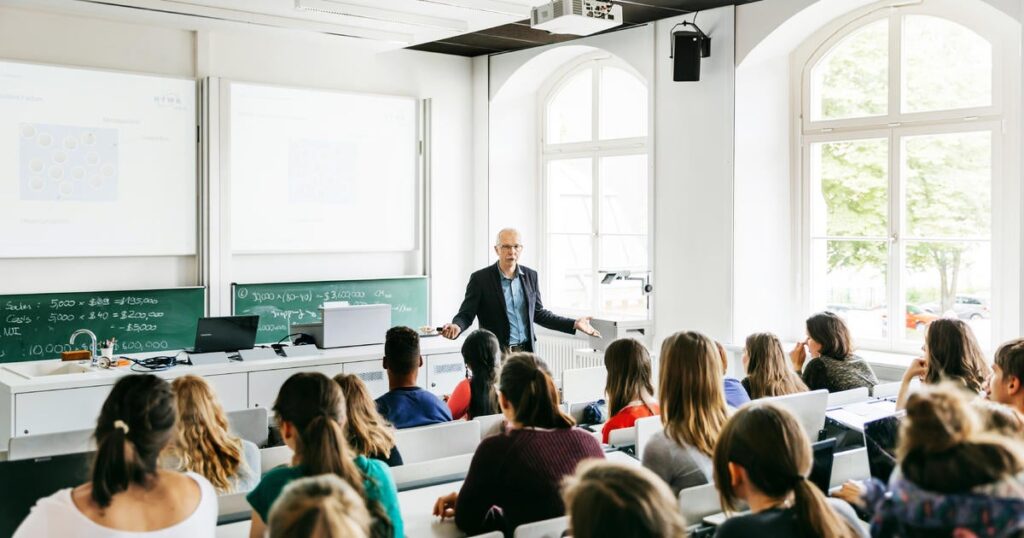Since ChatGPT was released just over two years ago, its use everywhere from the workplace to academia has expanded significantly. In schools across the country, teachers and administrators have been grappling with how to contend with this new tool. While some say it has benefits, others point out the negatives, like cheating.
This is leading to a divide in classrooms across the country with some teachers encouraging the use of AI and others voting to ban it completely.
“We believe very strongly that AI literacy, actually teaching kids in developmentally appropriate ways, what A.I. is and isn’t and then how to use those tools responsibly, is a better approach than just outright AI banning,” Amanda Bickerstaff, CEO of AI For Education, a group that provides what it calls “AI literacy training,” told CBS.
A former high school biology teacher, Bickerstaff now works with educators across K-12 and higher to adopt AI in their classrooms so students can learn how to use the tool ethically. She believes students need to be prepared for both the short- and long-term changes technology brings.
However, philosophy professor James Taylor from The College of New Jersey disagrees.
Taylor told CBS that he was open to using AI at first. But, after seeing many identical essays, often full of false or misleading information that was obviously AI-generated, he decided to ban it.
“If you type in a prompt, boom! There’s the answer. But that means the student has now outsourced all of their thinking to a machine. They haven’t worked out and developed the skills themselves,” Taylor explained.
In Taylor’s philosophy classes, students have to complete handwritten assignments without any devices. Rather than allowing AI to do all the work, students are encouraged to discuss their views, analyze others’ arguments and come to a conclusion on what’s right.
“Using it responsibly is important, but I think there has to be some classroom spaces where it’s prohibited and its use is eliminated,” Taylor said.
“As soon as it’s banned, it’s forbidden fruit,” Bickerstaff pointed out. She believes kids will use AI in ways that could be harmful if parents and educators don’t allow or encourage their use.
Instead, she’s teaching students and teachers how to write effective AI prompts, which she says will enhance learning, and how to verify AI outputs.
While both Bickerstaff and Taylor may not see eye-to-eye on bans, they both believe in taking a proactive, balanced approach to AI.
“We’re living through an inflection point unlike anything we ever lived before,” Bickerstaff said. “Generative AI is becoming ubiquitous in a lot of our tools, social media and devices. If you have a new iPhone, then you already have generative A.I. models that are in your hands.”
https://www.cbsnews.com/news/ai-in-schools-debate/


